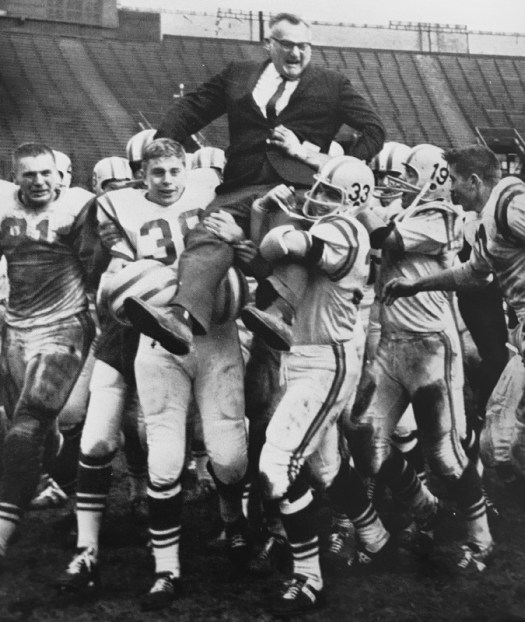Renaissance Man: Clevelander, Golden Apple winner and Fenwick Theology/Film Teacher for the past 12 years, Mr. Paulett also is a writer, musician and theater aficionado.

Mr. Paulett enjoying his vacation in Paris, France, this summer.
What is your educational background?
JP: My undergraduate degree was in Linguistics and Classical Languages from Georgetown University. I have a Master’s degree in Theology from Felician University and an MFA in Creative Writing from Antioch University. During my Golden Apple Sabbatical, I began a doctoral program in religious studies at Northwestern University.
What did you do prior to becoming a teacher at Fenwick?
JP: I taught for 10 years while I was in my twenties — at Lake Catholic High School in Cleveland and then at Kent State University, where I was doing doctoral work in theater and film. I then left teaching for family reasons and went into business. I had planned to work in business for two years but it turned into 25 years. I had always planned to return to teaching. When my daughter was through college, I had my opportunity and joined Fenwick.
What are you currently reading for enjoyment?
JP: I always have several books going at the same time. Right now, I am reading David Brooks’ new book The Second Mountain: The Quest for a Moral Life. I am also reading a history of the Second World War in the Aleutian Islands. Rounding that out is Wasn’t That a Time? — the story of the folk singing group The Weavers.
What interests do you pursue outside of the classroom?
JP: I am a theater fanatic. In most weeks, I attend two or three performances. I love opera and subscribe to the Lyric Opera. I also subscribe to the Chicago Symphony, the Music of the Baroque and three theater companies. I fill in the other nights with smaller theaters and films at the Gene Siskel Center. I am a writer (I have four books published) and am active writing almost every day. I have a new book in progress that I hope to finish by fall. I play music (guitar, banjo, mandolin) and usually pick up an instrument for a few minutes every day.
To what teams and/or clubs did you belong as a student?
JP: When I was in high school [at St. Ignatius in Cleveland], I was a member of the Debate Team and was fortunate to have some success. I was also in the theater. I acted in several plays and, during my senior year, wrote and directed a play. I sang in the choir and played in a rock band. I was a dreadful athlete and got cut from every sport I attempted. I wrote for the school newspaper and, for a while, published an underground newspaper. The teachers caught me running this off on the mimeograph machine and the paper was ended.
Which clubs/sports/activities do you run at Fenwick?
JP: I have moderated a variety of groups at Fenwick. I was the chess coach and the moderator of Touchstone [the student literary magazine] for several years. I directed the spring musical and was music director for Banua. I have been the moderator of the Photography Club for the last few years. Next year, I will guide the new Film Club.
What quality/characteristic marks a Fenwick student?
JP: Fenwick students generally have a seriousness of purpose that sets them apart. I teach Moral Theology. In that class, we study philosophers such as Kant, Bentham and John Stuart Mill. Most students will not encounter these thinkers until junior year of college. Fenwick students deal with this advanced content with thoughtfulness and diligence.
When did you decide to become a teacher, and why did you choose this field?
JP: I was deeply affected by several teachers in high school, probably none more than my speech teacher Mr. William Murphy. He was an intense, rigorous and sometimes difficult man who drove, excited, demanded and inspired his students. I suppose that my desire to become a teacher started with a hope to be like Murph. I have been very blessed in my life, and I think I have an obligation to give back. Teaching has been the best way I have found to return what I have been given.
Continue reading “FACULTY FOCUS: Fenwick Theology & Film Teacher John Paulett”




 The article, written on October 10th, stated that, “21 students were hospitalized for alcohol consumption in the fall semester of last year, 20 students have already been hospitalized in the first half of the fall semester this year.”
The article, written on October 10th, stated that, “21 students were hospitalized for alcohol consumption in the fall semester of last year, 20 students have already been hospitalized in the first half of the fall semester this year.”